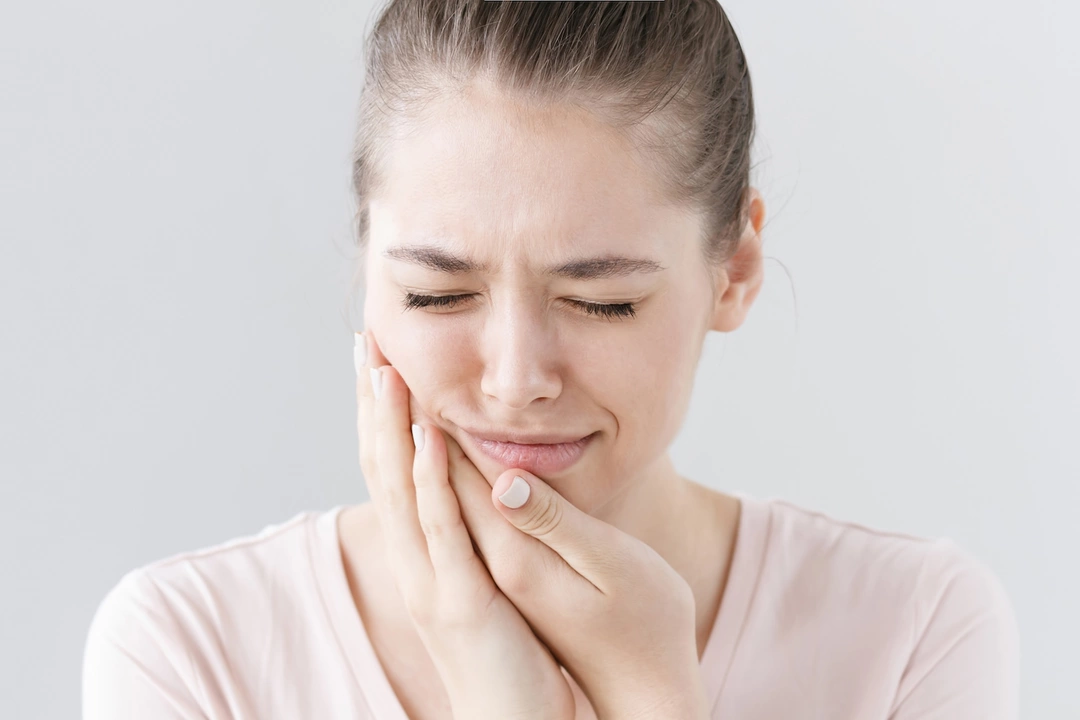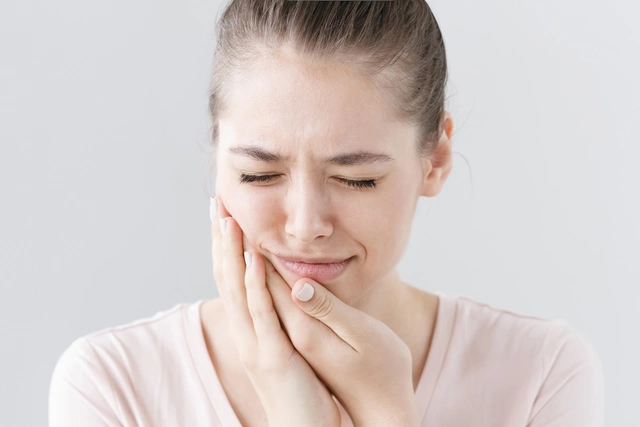The Connection Between Toothaches and Smoking
As a smoker, you might be aware of the various health risks that come with smoking, such as lung cancer, heart disease, and respiratory problems. However, there's another hidden danger that you might not have considered: toothaches. In this section, we'll explore the connection between toothaches and smoking, and how the two are related.
Smoking can cause a variety of dental problems, including toothaches. This is because smoking impairs blood flow to the gums, which can lead to gum disease and, eventually, toothaches. Additionally, smoking can cause a buildup of plaque and tartar on the teeth, which can lead to tooth decay and toothaches. In short, smoking is a significant risk factor for developing toothaches and other dental issues.
How Smoking Damages Your Teeth and Gums
Now that we've established the connection between toothaches and smoking, let's take a closer look at how smoking damages your teeth and gums. Smoking can cause a wide range of dental problems, from minor issues like bad breath and tooth discoloration to more severe problems like gum disease and tooth loss.
One of the main ways smoking damages your teeth and gums is by reducing blood flow to the area. This can cause the gums to recede, exposing more of the tooth's root and making it more susceptible to decay. Additionally, smoking can lead to a dry mouth, which can further contribute to tooth decay and gum disease. Lastly, the chemicals in tobacco smoke can break down the collagen in your gums, weakening them and making them more prone to infection.
How to Prevent Toothaches and Dental Issues Caused by Smoking
If you're a smoker, you might be wondering how you can prevent toothaches and other dental issues caused by smoking. The best way to prevent these problems is to quit smoking, but we understand that this can be a difficult and challenging process. In the meantime, there are a few steps you can take to protect your teeth and gums from the harmful effects of smoking.
First, make sure to maintain a good oral hygiene routine, including brushing your teeth at least twice a day, flossing daily, and using an antibacterial mouthwash. This can help to remove plaque and bacteria from your mouth and reduce your risk of developing toothaches and other dental issues. Additionally, visit your dentist regularly for checkups and cleanings, as they can help to catch any problems early and prevent them from becoming more severe. Lastly, consider using nicotine replacement products like gum, patches, or lozenges to help reduce your cravings for cigarettes and decrease your overall tobacco consumption.
How Quitting Smoking Can Improve Your Oral Health
Quitting smoking is the best thing you can do for your oral health, as it can help to reverse many of the negative effects of smoking on your teeth and gums. In this section, we'll discuss some of the ways that quitting smoking can improve your oral health and reduce your risk of toothaches and other dental problems.
When you quit smoking, your body begins to heal itself almost immediately. Within just a few weeks, blood flow to your gums will start to improve, which can help to reduce gum inflammation and promote healing. Additionally, quitting smoking can help to decrease plaque and tartar buildup on your teeth, reducing your risk of tooth decay and toothaches. Finally, quitting smoking can help to improve your breath and the appearance of your teeth, as they will no longer be exposed to the staining chemicals in tobacco smoke.
Seeking Professional Help for Toothaches and Smoking Cessation
If you're struggling with toothaches and smoking, it's important to seek professional help. Your dentist can provide you with personalized advice and treatment options to help you manage your toothaches and improve your overall oral health. Additionally, they can refer you to resources and support for quitting smoking.
Working with a healthcare professional can significantly increase your chances of successfully quitting smoking and improving your oral health. There are various smoking cessation programs, medications, and therapy options that can be tailored to your specific needs and preferences. Don't hesitate to reach out for help – your teeth, gums, and overall health will thank you in the long run.



I totally get how painful a toothache can be, especially when you’re also trying to quit smoking.
It’s amazing how quickly the body starts healing once you cut back on nicotine.
Keeping up with brushing, flossing, and a good mouthwash can make a huge difference while you’re in that transition period.
Don’t be hard on yourself if you slip; every small step counts toward healthier gums.
Stay motivated-you’re doing something great for your teeth and your overall health.
I’ve smoked my whole life and never had a single toothache, so this scare tactic is nonsense.
One must consider that the tobacco industry has long funded research to downplay oral health risks, a fact well‑documented in declassified archives.🕵️♀️
It is plausible that the alarming statistics presented are, at least in part, a strategic maneuver to tarnish a product that generates immense revenue.
The selective emphasis on gum disease, while ignoring variables such as diet and genetics, raises legitimate concerns about bias.
Hence, a critical appraisal of the source material is imperative before accepting these conclusions at face value.
The relationship between nicotine exposure and oral health has been extensively documented in peer‑reviewed literature.
One pivotal study from the Journal of Dental Research demonstrated a statistically significant increase in periodontal pocket depth among chronic smokers compared with non‑smokers.
Mechanistically, nicotine induces vasoconstriction, thereby limiting the delivery of essential nutrients and immune cells to the gingival tissue.
Reduced perfusion compromises the tissue’s reparative capacity and predisposes it to bacterial invasion.
Furthermore, tobacco smoke contains over 7,000 chemicals, many of which are potent oxidizing agents that accelerate enamel demineralization.
The resultant acidic environment fosters the proliferation of Streptococcus mutans, the primary pathogen implicated in caries formation.
In addition to chemical insults, the behavioral pattern of smoking often correlates with suboptimal oral hygiene practices, such as reduced frequency of brushing after a cigarette.
Salivary flow, which serves as a natural buffer, is also diminished in smokers due to nicotine‑induced xerostomia.
A dry mouth provides an unchecked niche for plaque accumulation, further escalating the risk of both decay and gingivitis.
Clinical observations consistently reveal that smokers exhibit higher indices of plaque scores and bleeding on probing.
These clinical markers are not merely aesthetic concerns; they are predictive of long‑term outcomes such as tooth loss.
Importantly, cessation of smoking initiates a cascade of physiological improvements that can be observed within weeks.
Studies have reported measurable increases in gingival blood flow as early as two weeks post‑cessation, accompanied by reductions in inflammatory biomarkers.
Consequently, the tissues regain a degree of resilience, allowing for more effective response to routine dental care.
While quitting is undeniably challenging, the dental benefits constitute a compelling incentive that complements broader systemic health advantages.
Thus, integrating smoking cessation strategies into routine dental visits can dramatically improve patient prognosis.
Let’s dissect the narrative here: the author paints a bleak picture, then conveniently offers nicotine gum as the silver bullet.
This dichotomy feels engineered to monetize the very problem it decries.
From a toxic‑analysis standpoint, the emotional tug‑of‑war is palpable, as if the text feeds off readers’ anxieties.
Meanwhile, the underlying message-your health is contingent upon a product that the industry sells-creates a vicious feedback loop.
It’s almost theatrical, the way the dangers are dramatized only to be soothed by the same habit’s substitute.
One could argue this is a classic case of problem‑re‑solution branding, masquerading as genuine advice.
I agree with the points about improved blood flow after quitting.
Consistent dental check‑ups will definitely help catch issues early.
Oh great, another post telling us to quit smoking-how original.
But seriously, if you’re already battling a toothache, the last thing you need is a lecture, just grab that nicotine patch and book a dentist appointment.
The irony isn’t lost on me, yet the motivation to finally give those gums a break is oddly satisfying.
Just remember: procrastination is the real villain here.